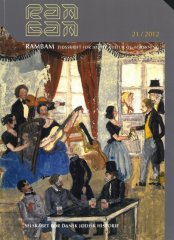Generalkonsulen og fonografen
Abstract
The Consul General and the Phonograph
The phonograph was invented by Thomas Edison in 1877 but wasn’t widely known to the Danish people until the fall of 1889 when the successful business man and consul general, Moses Gottfried Ruben, along with his partner, Cornelius Knudsen, introduced the phonograph to the Royal Family of Denmark and later to the citizens of Copenhagen.
Ruben managed to attract the press, which was eager to report on this ingenious machine that was able to record and reproduce sound. The journalists, at numerous occasions, reported about the enthusiasm and surprise of the audience when exposed to this marvellous invention, but also made it clear that one shouldn’t expect the fully artistic pleasure of music through the phonograph. The phonograph first and foremost attracted curiosity for its news value. The people came in large numbers to hear music and speeches through the phonograph with their own ears, but with time the interest faded, and, due to its high price, few people, if any, were able to purchase a phonograph themselves.
In the years after introducing the phonograph to the public, Ruben made a series of recordings of, among others, stars from the Royal Danish Theatre. Gottfried Ruben died in 1897 and didn’t live to see his beloved phonograph being outdone by the much more practical gramophone. Most of the phonographs were destroyed along with the wax discs containing the recordings. Fortunately 150 of Ruben's recordings were preserved, and these recordings are the oldest Danish sound recordings known. Ruben's recordings are available on www.rubensamlingen.worldpress.com





